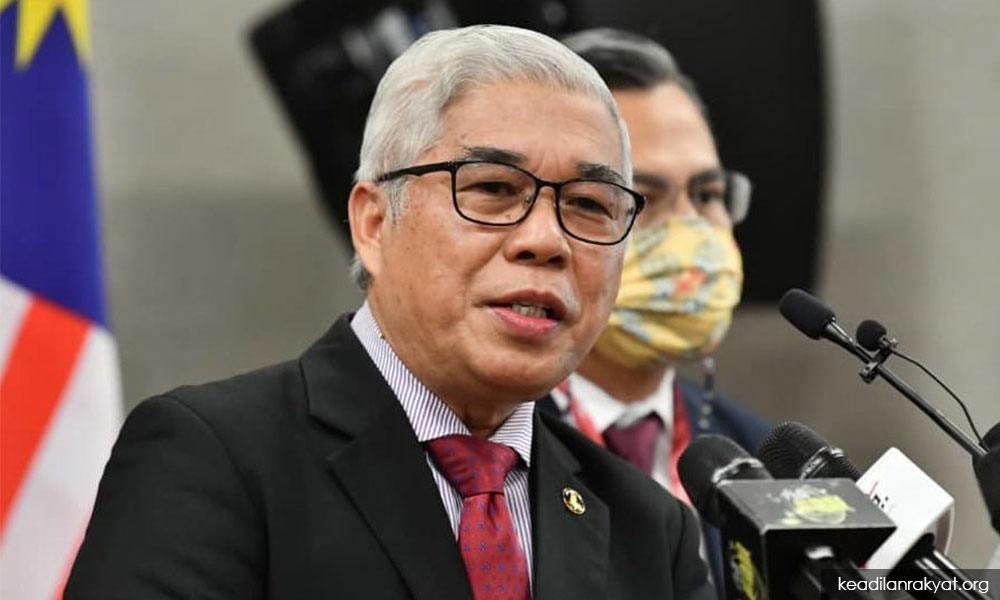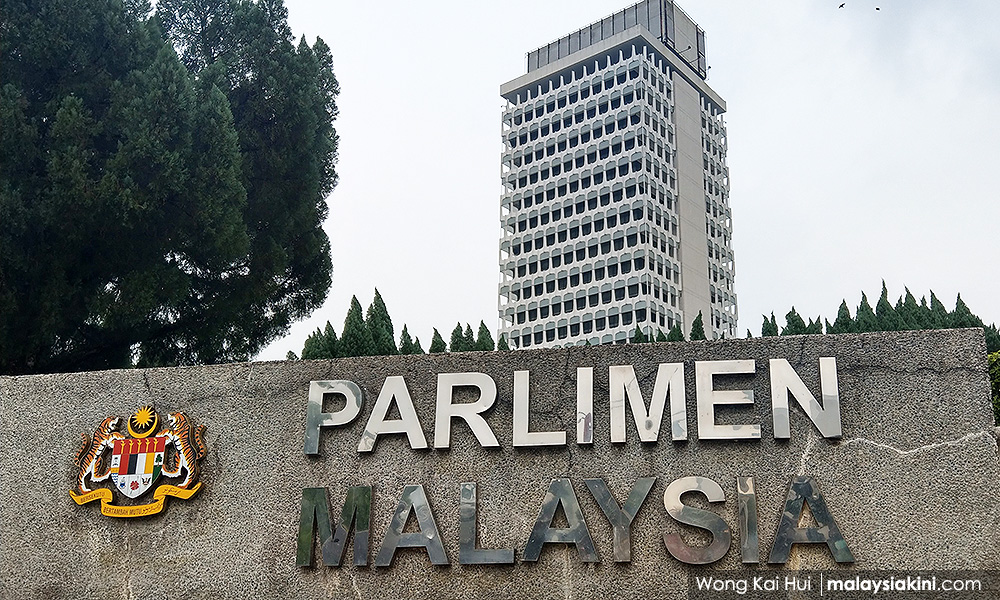In the chapters in this book, I believe I have demonstrated that the Speaker is not all-powerful, but neither is he without any power or authority against The Executive in his role to facilitate constructive debate between Parliamentarians and nurture good public governance and government accountability.
The Standing Orders can be a tool to enable rather than shut down Parliament’s role to scrutinise, emphasise, and advise the government. It is distressing to see, repeatedly, during this short span of time that Parliament instead is seen as an administration’s enemy to be muzzled even during times of grave crises.
The use of rules to avoid and prevent Parliament from performing its functions only allows incompetence to remain unchecked – which comes at a great cost to the government itself. This is not impossible to do, as the following example will show.
During the 2019 toxic pollution incident in Sungai Kim Kim, that sits partly in Pasir Gudang and partly in Tebrau, Hassan Abdul Karim, the MP for Pasir Gudang, filed a motion under Standing Order 18 to debate the incident and to urge the Government to declare a localised emergency or a “darurat bencana” in the area.
The motion was filed on 13 March 2019. I accepted it immediately. The debate on the matter took place the next day on 14 March, which allowed MPs to ask the relevant ministries for answers and get their assurances on the still-developing incident which affected 6000 people.
Hassan was a Government backbencher at the time, and not a Minister, which usually would have meant that he would need to put in his motion at least 24 hours in advance of the sitting.
Ordinarily, the Speaker would be expected to seek the views of the Ministers concerned beforehand (in this case, at least six) as a matter of parliamentary convention. However, strictly adhering to this convention during a developing pollution event would have been ridiculous as thousands of people were falling ill due to the toxic fumes that were spreading in the area.
The letter of the law was an insufficient replacement for urgent leadership. I count myself fortunate in having Datuk Liew and Hanipah Maidin who understood the first principles of parliamentary accountability, in this instance in an emergency. Acting in unison, we persuaded all six relevant Ministries to have the Ministers present the next day at 4.30pm in the main Dewan, not the smallish Special Chamber (Kamar Khas).
The debate had to be given the widest coverage and telecast live and it could only be done in the main Dewan. Datuk Liew agreed with the advice from the Speaker’s Office and the SUDR that we suspend one Standing Order (SO 16) to allow this debate in the Dewan.
The ultimate discretion lies with the Speaker, and I am pleased to place on record that I was willing to cast aside the literal and the narrow and interpret the Standing Orders the only reasonable way it should.

After all, Standing Orders are internal rules of proceedings, not cast in stone or even tropical hardwood. Its flexibility is accepted in Standing Order 90 of the Dewan Rakyat which allows the suspension of any of the rules with his consent.
Four senior Ministers and two Deputy Ministers attended the debate on 14 March at 4.30 pm: Mat Sabu (Defence), Dr Dzul (Health), Dr Maszlee Malik (Education), Salahuddin Ayub (Agriculture), Isnaraissah Munirah Majilis (Deputy Minister, Energy, Science, Technology, Environment and Climate Change) and Hanipah Maidin (Deputy Minister, Prime Minister’s Department).
Each provided details on steps being taken on the ground within their respective portfolios. The whole nation was kept abreast on how the crisis was being handled by the Government, and ultimately even the mover of the motion, Hassan Karim, was satisfied that it had become unnecessary to declare a darurat bencana in the area as the necessary steps to contain the chemical pollution had been taken.
The lesson to be learned from this episode is valuable. I regard this as one of the high points in my brief tenure as Speaker. It shows the principle of government accountability at work in a splendid way, and how the Standing Orders must never be used as an excuse to distort or avoid this high constitutional principle.
The Ministers and Deputy Ministers then did a splendid job! Oftentimes, the leaders themselves may not be especially interested to be fully accountable, but the rakyat have a right to honesty, integrity and statesmanship from persons in power who are themselves chosen by the people.
These people’s representatives must be made constantly accountable to them in the way those in power in a system of parliamentary democracy are expected to be.
Reforms and beyond
This book has spent a considerable amount of time discussing Parliament’s rules and practices, in the hope that it would provide some clarity over how they operate, and how they can be improved.
As I argued earlier, without reforming Parliament, there is little hope to regain the ever-elusive trust of the rakyat in their elected representatives.
These rules, and the legal frameworks that enable them, are akin to a computer’s operating system. It may be filled with features and can perform incredible tasks, but ultimately it depends on the motivations and knowledge of the user.
They may require drastic updating, but Parliament’s Standing Orders provide a framework for orderly and efficient conduct that should allow MPs to debate and deliberate over important issues of the day for the sake of the rakyat.

It is hoped that by creating greater awareness of the rules that already exist, people will be able to better understand how Parliament functions today, and what can be done to improve it.
What is more difficult, by magnitudes, is the wider work that needs to be done to move our voting public to a greater appreciation of the functions of democracy and participating in it.
There needs to be an effort to reverse multiple generations’ worth of official and unofficial indoctrination and reconstitute our understanding of what it means to be a member of Malaysian society.
People need to move beyond using laws and policy as a means towards advancing each person’s narrow interests and start thinking of the purposes and the intents of law-making to create a better society.
This is the foundational work that needs to be done, the “cultural support” that I alluded to earlier. It is no longer enough to vote, we must also demand more from the democratic system itself.
This is why parliamentary reforms matter, but they are only one tool in a suite of changes that we need for Malaysia. Our rules and culture must keep up with the times and demands of a more diverse and sophisticated population, and counterweight destructive political impulses which would put the purpose of Parliament out of whack.
The points that I have raised in this book are not only to discuss the possible current interpretations and applications, but they also serve to highlight the areas where restoration alone is not enough, and a review (at the very least) and serious reform need to take place.
The space for intelligent, honest, and effective deliberation must be protected, at minimum, or expanded.
The law cannot prevent incompetent and indolent individuals from assuming public office, but the structures of power – civil society, political parties, media, clergy, et cetera – can influence who gains prominence.
If capable, right-thinking Malaysians avoid participation and remain on the sidelines, then the entire country will continue to be at the mercy of those who are least deserving of those positions. - Mkini
This is the last excerpt from Mohamad Ariff Md Yusof's new book titled ”Parliament, Unexpected”, a reflection on his time as the Dewan Rakyat speaker.




No comments:
Post a Comment
Note: Only a member of this blog may post a comment.